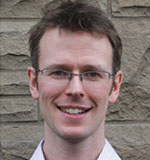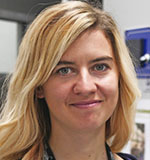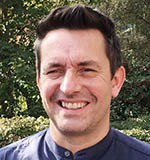Cost: £400
Book a place
Overview
This two-day continuing professional development (CPD) course for building professionals will help you understand moisture risks in buildings and how to manage them.
It aims to create a safer and healthier built environment by disseminating knowledge, skills and good practice to help you identify, assess and manage moisture risks in the design, construction and retrofit of buildings.
The course is based around the four principles set out in Moisture in buildings: an integrated approach to risk assessment and guidance by Neil May and Chris Sanders (BSI, London, 2018) and in the forthcoming new edition of BS 5250 Control of condensation in buildings. These principles, known as 'the four Cs', are:
- Context: understanding the building's history, setting, construction, condition, occupancy pattern, etc.
- Coherence: adopting a consistent, integrated, whole-building approach to all aspects of new-build and retrofit.
- Caution: identifying, assessing and managing moisture risks, and, where knowledge is limited, erring on the side of caution.
- Capacity: ensuring adequate capacity in building systems rather than over-optimising, to allow for unexpected or changing circumstances.
This course is run by the UK Centre for Moisture in Buildings (UKCMB).
Who this course is for
The course is aimed at building and technical professionals in housing, including:
- architects
- surveyors
- building services engineers
- construction project managers
- domestic energy assessors
- retrofit coordinators
- energy and sustainability consultants
- housing asset managers
- housing repairs and maintenance surveyors
- housing energy advisors
Course content
The course is divided into four half-day modules:
1. Context
This module will explain the origin of current moisture risks. It'll cover a brief history of building construction, occupation and ventilation, and a summary of emerging issues.
You'll also watch a video about the use of a moisture-balance tool developed by UKCMB.
2. Coherence
This module will cover:
- how moisture behaves in air, on surfaces, and in materials, including condensation and mould growth
- how we can measure these phenomena
- the roles of tools, models and testing
3. Caution
This module will look at identifying, assessing and managing moisture risks in buildings, including the use of simple risk-assessment checklists and tools.
You'll also use customised Microsoft Excel workbooks for moisture risk assessment.
4. Capacity
This module will explore:
- translating theory into practice through examples of new-build and retrofit projects
- integrating moisture risk management into designs and work on site
Teaching and structure
Each module is taught by a member of the UKCMB training team, and will involve a presentation and at least one exercise to be completed in groups and/or individually.
You'll be able to ask questions and take part in group discussions during each module.
You'll also receive a short pre-reading list ahead of the course.
Certificates and assessment
There's an online assessment process which will take you about 3 hours to complete.
Once you've completed the assessment, you'll receive a CPD certificate from UKCMB.
Learning outcomes
After completing this course, you'll be:
- able to identify moisture-related risks associated with new building or retrofit projects and know how to mitigate them
- familiar with the mechanisms of moisture transfer within buildings (in air, on surfaces and within the construction)
- aware of the conditions that give rise to condensation and mould growth
- familiar with moisture risk assessment and management techniques and be able to apply them
Entry requirements
To attend this course you should:
- hold a building-related professional or vocational qualification (e.g. in architecture, building, surveying, building services engineering, energy assessment, building project management or retrofit coordination and risk management)
- be familiar with building construction and able to read and understand building drawings and specifications
- be familiar with Microsoft Excel
UK Centre for Moisture in Buildings (UKCMB)
The UKCMB is a partnership of UCL's Institute for Environmental Design and Engineering (IEDE) and Civil and Geomatic Engineering (CGE) with the Building Research Establishment (BRE), as well as a network of many other organisations and individuals. It's housed in the Bartlett School of the Environment, Energy & Resources at UCL.
Course team

Nicholas Heath
Nicholas is a Certified Passivhaus Consultant and runs an energy consultancy specialising in the sustainable retrofit of traditional buildings. He's led award-winning retrofit projects and is the author of numerous research reports and best-practice technical guides. Nicholas is also Associate Technical Director of the Sustainable Traditional Buildings Alliance (STBA), an IHBC Affiliate, an AECB Member, and a licenced PHPP, SAP, RdSAP and BREEAM Domestic Refurbishment Assessor. He teaches regularly at both professional and postgraduate level.

Valentina Marincioni
Valentina is a Teaching Fellow and researcher at UCL’s Institute for Environmental Design and Engineering. She's also Technical Manager of the UKCMB. Her research is about moisture transfer within the building fabric, combining in-situ monitoring, hygrothermal simulations and laboratory experiments. Valentina has helped to develop moisture risk assessment methods, novel wall insulation systems and strategies for improving the energy efficiency of historic buildings. She's also contributing to the revision of BS 5250 Control of condensation in buildings.

Robert Prewett
Robert is a partner in Prewett Bizley Architects and a recognised expert in building retrofit. He teaches on the Retrofit Academy’s Retrofit Coordination and Risk Management course and has delivered masterclasses for the Passivhaus Trust. He sits on the Sustainable Traditional Buildings Alliance expert panel, and was co-author of acclaimed guidance on solid wall insulation for Bristol City Council. He's a member of the BSI Retrofit Standards Task Group and co-chairs the UKCMB’s Retrofit Technical Working Group.
Book a place
Course information last modified: 30 Nov 2022, 16:00
 Close
Close

